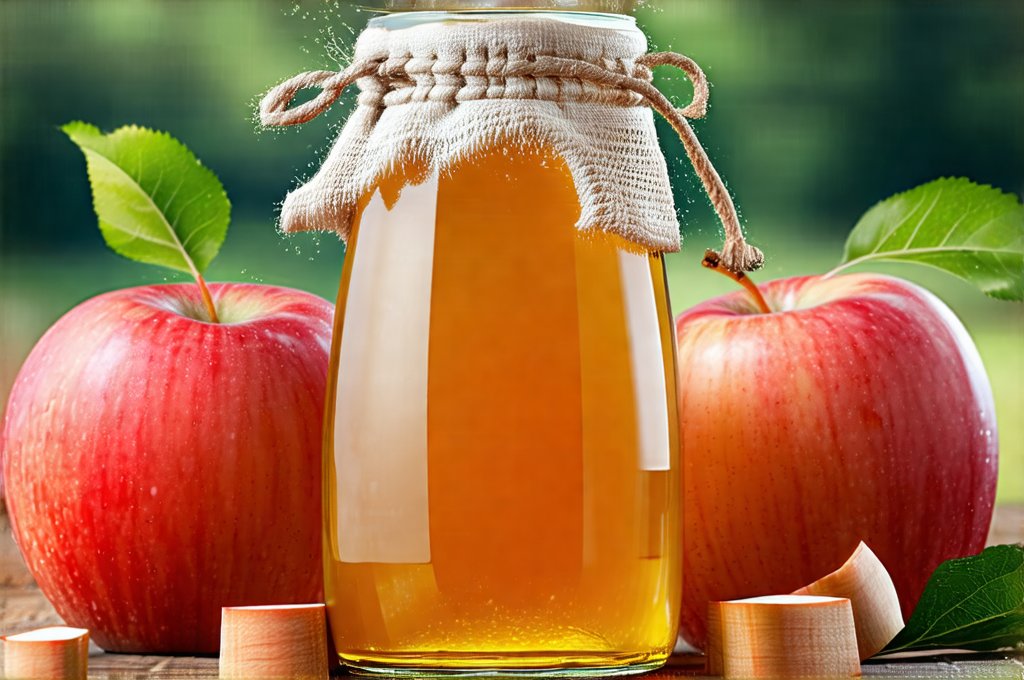Acid reflux, also known as heartburn, is an incredibly common digestive issue affecting millions worldwide. It occurs when stomach acid flows back up into the esophagus – the tube connecting your mouth to your stomach – causing a burning sensation in the chest and sometimes a sour taste in the mouth. While occasional acid reflux is usually harmless and can often be managed with lifestyle changes or over-the-counter medications, chronic acid reflux (GERD – Gastroesophageal Reflux Disease) requires medical attention. Many people are actively seeking alternative or complementary approaches to manage their symptoms, leading to growing interest in natural remedies like apple cider vinegar (ACV).
The allure of ACV as a potential remedy stems from its purported ability to balance stomach acidity and improve digestion. However, it’s crucial to understand that the relationship between ACV and acid reflux is complex and often counterintuitive – after all, you might think adding acid would worsen the problem! This article will delve into the science behind why some individuals report relief with ACV, explore the potential mechanisms at play, and discuss important considerations before incorporating it into your routine. It’s vital to remember that ACV isn’t a one-size-fits-all solution and should be approached cautiously, ideally in consultation with a healthcare professional. Understanding gut health in food reactions can also play a role in managing symptoms.
Understanding Acid Reflux & Stomach Acidity
Acid reflux isn’t always caused by too much stomach acid. In many cases, it’s actually linked to low stomach acidity. When stomach acid is insufficient, food doesn’t digest properly and remains in the stomach for longer periods. This can lead to pressure building up, forcing the lower esophageal sphincter (LES) – the muscle that prevents stomach acid from flowing back up – to open inappropriately. This weakened barrier allows acidic contents to creep into the esophagus, triggering those uncomfortable heartburn symptoms. Furthermore, inadequate stomach acidity impairs nutrient absorption and may contribute to bacterial overgrowth in the gut.
The conventional approach often involves reducing stomach acid with medications like proton pump inhibitors (PPIs) or H2 blockers. While effective for short-term relief, long-term use of these medications can sometimes exacerbate the problem by further suppressing acid production, creating a cycle where symptoms return stronger when medication is stopped. This has prompted many to explore alternatives that might enhance digestion and restore natural acidity levels, leading to interest in ACV. It’s important to note that self-treating chronic reflux with any remedy – including ACV – without proper medical guidance isn’t advisable. A focus on hydration in reducing reactions can also provide relief for some individuals.
ACV’s potential benefit lies in its acetic acid content. Some proponents believe it can help increase stomach acidity in those with low levels, aiding digestion and reducing the likelihood of food lingering and triggering reflux. However, this is a simplified explanation; the impact on individual digestive systems varies greatly depending on factors like diet, lifestyle, and underlying health conditions.
How Apple Cider Vinegar Might Impact Reflux Symptoms
The proposed mechanism behind ACV’s potential benefit revolves around restoring pH balance in the stomach. A healthy stomach typically has a very acidic pH (between 1.5 and 3.5). If this pH is too high, it can contribute to reflux. The idea is that by modestly increasing acidity, ACV could help with digestion and prevent acid from backing up into the esophagus. But again, it’s essential to emphasize that this isn’t universally true and can backfire for individuals who already have sufficient or high stomach acidity.
- A properly functioning digestive system relies on adequate levels of hydrochloric acid (HCl) to break down food effectively.
- ACV contains acetic acid, which some believe can stimulate HCl production in the stomach, though scientific evidence supporting this is limited and contested.
- Improved digestion leads to faster gastric emptying, reducing pressure on the LES and minimizing reflux episodes.
It’s crucial to remember that ACV isn’t a substitute for addressing underlying causes of GERD, such as dietary habits or lifestyle factors. It should be considered, if at all, as part of a broader strategy alongside medical guidance and lifestyle modifications. The experience with ACV is highly individual; some individuals report significant relief while others experience no benefit or even worsening symptoms. Understanding the role of fiber in managing acid reflux can also support a healthy digestive system.
Dosage & Preparation: A Cautious Approach
If you’re considering trying ACV for acid reflux, starting with a very low dose is paramount. Begin with just 1 teaspoon diluted in at least 8 ounces of water. Never consume ACV undiluted, as it can erode tooth enamel and irritate the esophagus. Increase gradually if tolerated, up to a maximum of 1-2 tablespoons per day – and only after consulting your doctor.
- Dilution is key: Always mix ACV with plenty of water.
- Timing matters: Some people find taking ACV before meals helps digestion, while others prefer during or after. Experiment cautiously to see what works best for you (if anything).
- Listen to your body: If you experience any worsening of symptoms – increased heartburn, nausea, stomach upset – discontinue use immediately and consult your doctor.
It’s also important to choose raw, unfiltered ACV with “the mother” – the cloudy sediment containing beneficial bacteria and enzymes. However, even high-quality ACV can have adverse effects if not used carefully. Individuals with certain medical conditions, such as ulcers, gastritis, or kidney problems, should avoid using ACV altogether.
Potential Risks & Contraindications
While often touted as a natural remedy, ACV isn’t without its potential drawbacks. As mentioned earlier, consuming undiluted ACV can damage tooth enamel and irritate the esophagus. Furthermore, ACV may interact with certain medications, including diuretics, insulin, and digoxin. People taking these medications should consult their doctor before using ACV.
- Tooth Enamel Erosion: The acidity of ACV can slowly erode tooth enamel over time. Rinsing your mouth with water after consuming ACV can help mitigate this risk.
- Esophageal Irritation: For individuals with existing esophageal issues or high stomach acidity, ACV could worsen symptoms.
- Medication Interactions: ACV may interfere with the absorption and effectiveness of certain medications.
It is absolutely vital to emphasize that this information is for general knowledge purposes only and does not constitute medical advice. If you are experiencing chronic acid reflux, it’s essential to consult a healthcare professional for proper diagnosis and treatment. Self-treating can be dangerous and may delay appropriate care. ACV should never be considered a replacement for prescribed medications or recommended lifestyle changes by your doctor. Recognizing the role of stress in acid reflux is also important for holistic management. Furthermore, the impact of apple cider vinegar in digestive health should be carefully considered and discussed with a medical professional. Many find relief through aloe vera in soothing acid reflux. Finally, understanding gut microbiome in food sensitivity can provide a more comprehensive approach to digestive wellness.


















